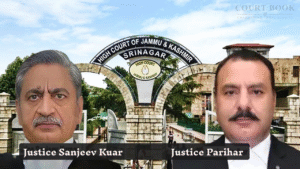The Supreme Court of India recently set aside the death penalty awarded to the accused, Irfan alias Bhayu Mevati and Asif Mevati, in a case of sexual assault and attempted murder of a minor in Madhya Pradesh. The apex court found that the trial court had exhibited “undue haste”, concluding the trial in less than two months without granting the accused a proper opportunity to defend themselves.
One of the key grounds for quashing the sentence was the failure of the trial court to ensure the deposition of forensic experts responsible for the DNA profiling report, which formed the cornerstone of the prosecution's case. The Supreme Court highlighted that the reliance on the DNA report, without the testimony of scientific experts, resulted in a miscarriage of justice.
“The DNA profiling report is a document on which the entire fulcrum of the prosecution case is based. The failure to examine the scientific witnesses has created a grave doubt on the probative value of the report.” – Supreme Court
The defense had sought access to complete laboratory documentation and cross-examination of forensic experts. However, these requests were denied at the trial level, leading the Supreme Court to intervene.
Read Also:- SC Upholds Kerala High Court's Direction to Register FIRs on Women's Exploitation in Malayalam Cinema
The Supreme Court criticized the unreasonably fast-tracked trial conducted by the lower courts. The case, which involved grave charges under the Indian Penal Code (IPC) and the Protection of Children from Sexual Offences (POCSO) Act, was completed in less than two months from the date of registration, violating the accused’s fundamental right to a fair trial.
“Expeditious disposal is required, but it cannot be at the cost of fairness. A fair opportunity to defend is non-negotiable, particularly in a case where the accused faces the death penalty.” – Supreme Court
The judgment referred to the precedent set in Anokhilal v. State of Madhya Pradesh, which mandates that accused individuals in capital punishment cases must have experienced legal representation and adequate time for defense.
Read Also:- SC Upholds Karnataka Law Granting Transport Permit Issuance Power to STA Secretary
The Supreme Court also took note of serious inconsistencies in the DNA evidence presented by the prosecution. The defense pointed out various flaws, including:
- Contradictions in DNA profiles from different samples taken from the victim.
- Unexplained presence of male DNA in samples collected six days after the crime.
- Errors in forensic documentation, including a typographical mistake in allele numbers, corrected later without informing the defense.
The Supreme Court found merit in these claims and observed that the lower courts failed to scrutinize the reliability of the forensic evidence, thereby violating established judicial principles.
Read Also:- Supreme Court Directs Petitioner to Approach High Court in Contempt Case Over Demolition in Sambhal
The court drew guidance from previous judgments emphasizing the importance of forensic examination and expert testimony in criminal trials. It cited Rahul v. State of Delhi and Zahira Habibulla H. Sheikh v. State of Gujarat, reiterating that:
“A criminal trial should be a search for the truth, not a mere formality to convict the accused.” – Supreme Court
Read Also:- SC Grants Interim Police Protection to Discovery Channel Officials Amid Threats Over Asaram Bapu Documentary
Given the gravity of the errors, the Supreme Court remanded the case for a fresh trial, directing the trial court to:
- Summon and examine the forensic experts responsible for the DNA report.
- Allow cross-examination of these experts by the defense.
- Re-record the statements of the accused under Section 313 of the Criminal Procedure Code (CrPC).
- Provide adequate legal representation to the accused, in accordance with the Anokhilal guidelines.
- Complete the retrial within four months.
The Supreme Court explicitly clarified that its observations were limited to the accused’s right to a fair trial and should not be seen as a comment on the merits of the case.
“This order should not influence the final decision of the trial court, which must independently assess the evidence.” – Supreme Court















